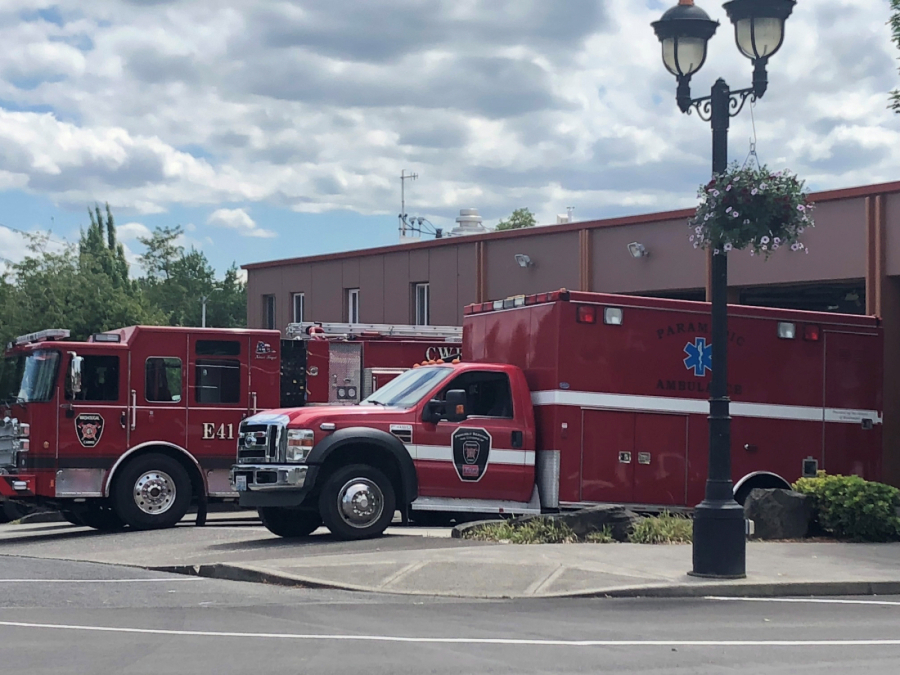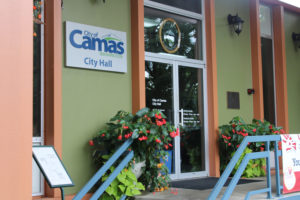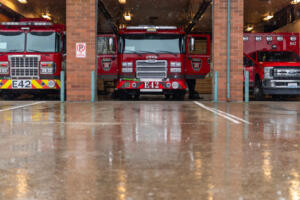The Camas City Council has approved a $148,000 contract with Battle Ground-based Johansson Wing Architects that will kickstart the replacement — and possible re-siting — of the Camas-Washougal Fire Department’s Station 41 headquarters.
Consultants from Mackenzie, the consultant group Camas city leaders hired in early 2021 to conduct a capital facilities plan for the Camas-Washougal Fire Department (CWFD) told city officials in October 2021, that the joint fire department needed to replace two fire stations and build a third within the next decade.
The consultants’ 2021 report showed Fire Station 41, currently located next to Camas City Hall in downtown Camas, did not meet the guidelines for “an essential facility,” would not withstand a major earthquake and should be replaced within three years. The report also warned the joint fire department should replace its Washougal fire station by 2028, and build a third fire station in Camas to accommodate population growth by 2031.
CWFD Fire Chief Cliff Free explained during the Camas City Council’s July 17 workshop that replacing Station 41 will eventually require at least 51% voter approval of a bond measure to pay for the station’s rebuilding and possibly relocation. The $148,000 with the Battle Ground-based Johansson Wing Architects, encompasses “the initial efforts to find a suitable site for a new CWFD Station 41 in the city of Camas, including community outreach, preliminary station programming, preliminary site and station design and eventual bond support services.”
Camas City Council members pushed a discussion about the contract to their Aug. 7 workshop after at least one councilor — Jennifer Senescu, who was appointed to her Council seat in February 2023 — said they had concerns about various aspects of the contract, including the public outreach efforts included in the consultants’ list of responsibilities.





